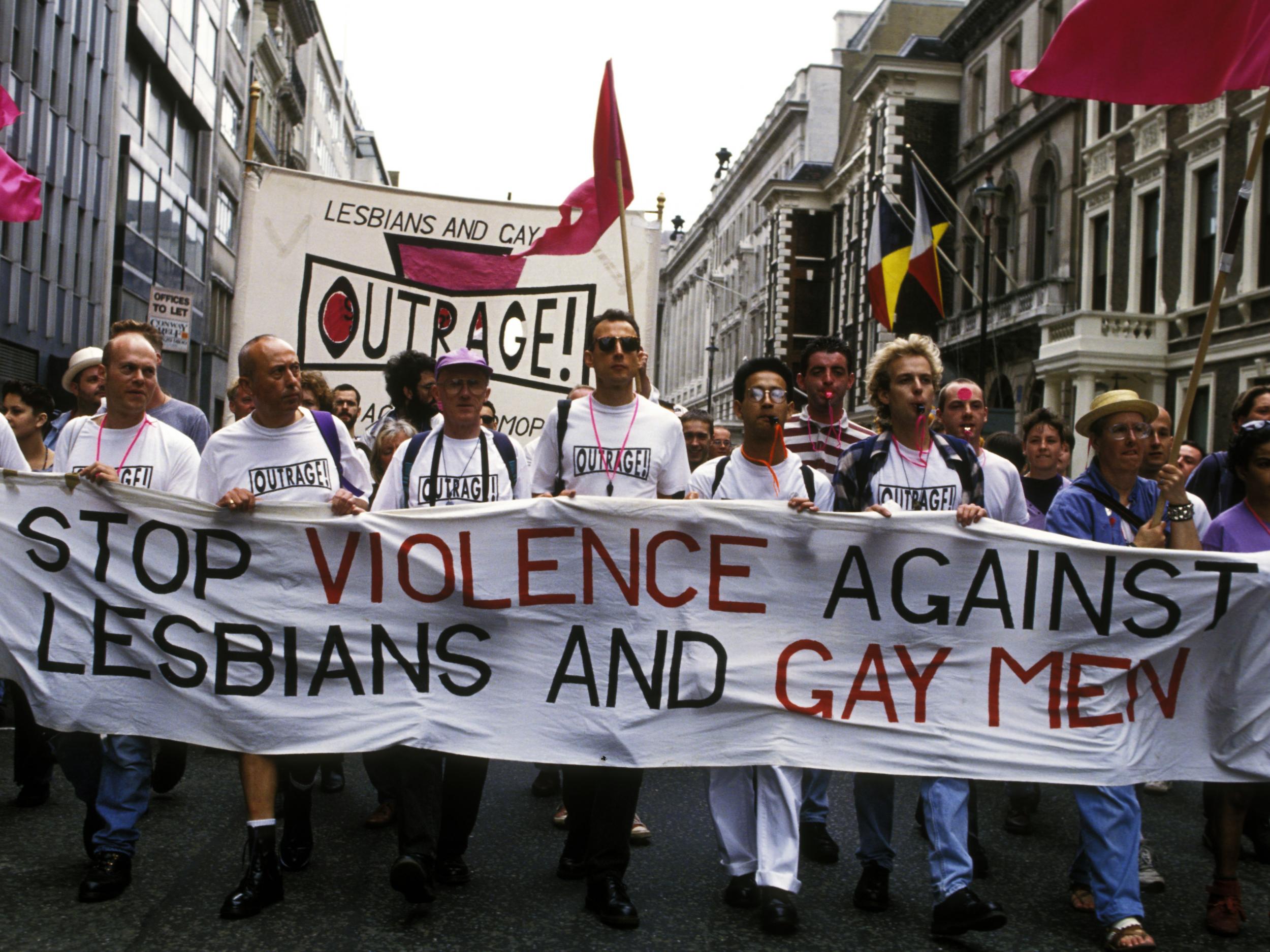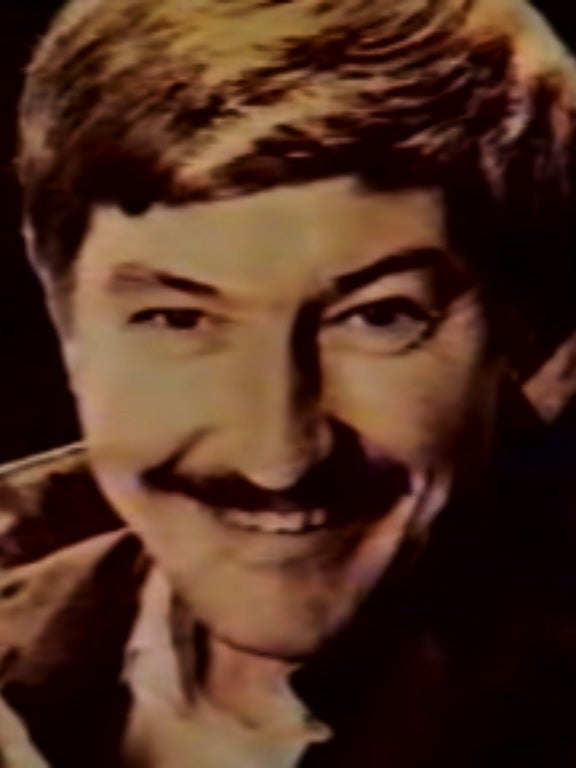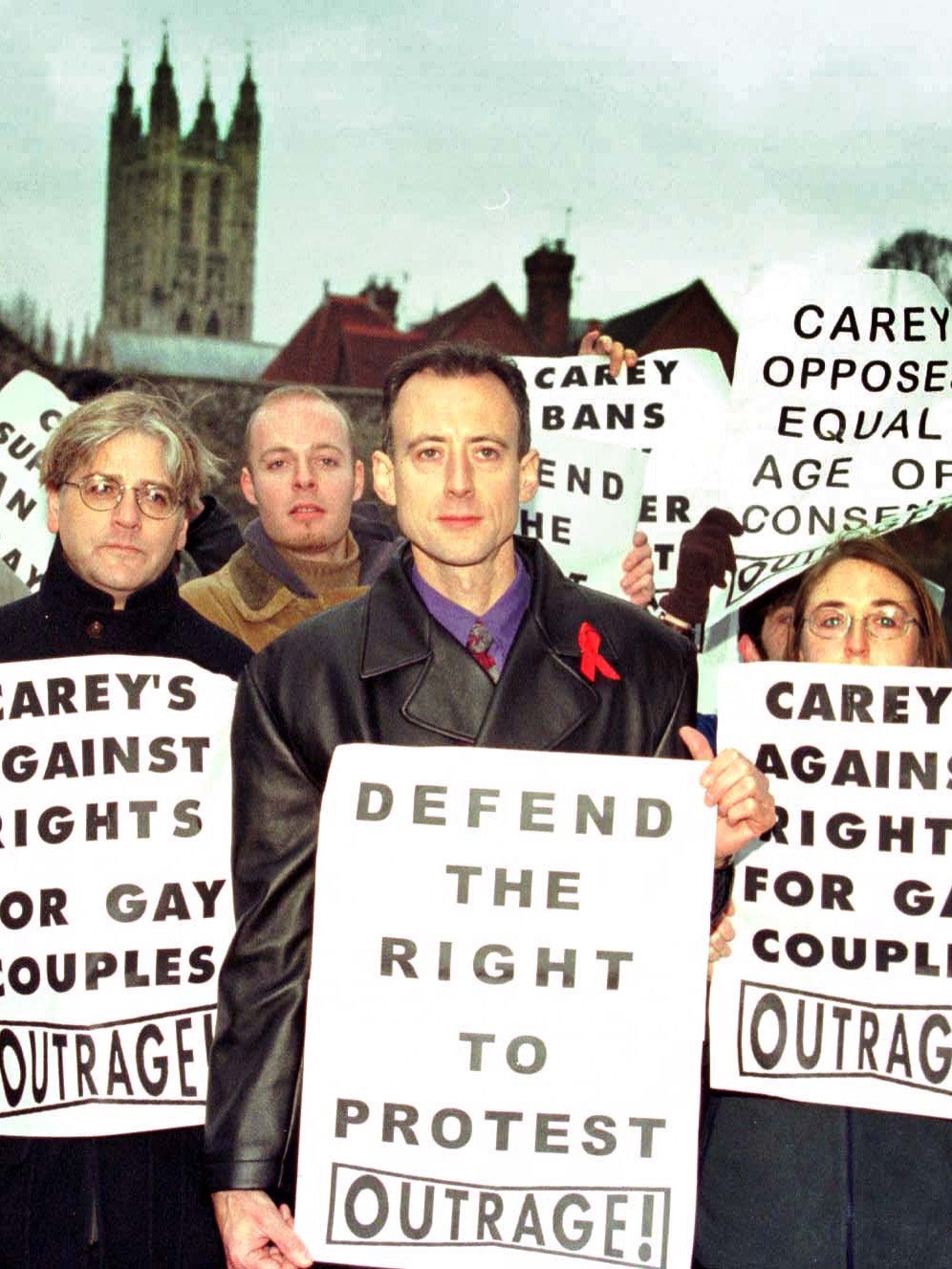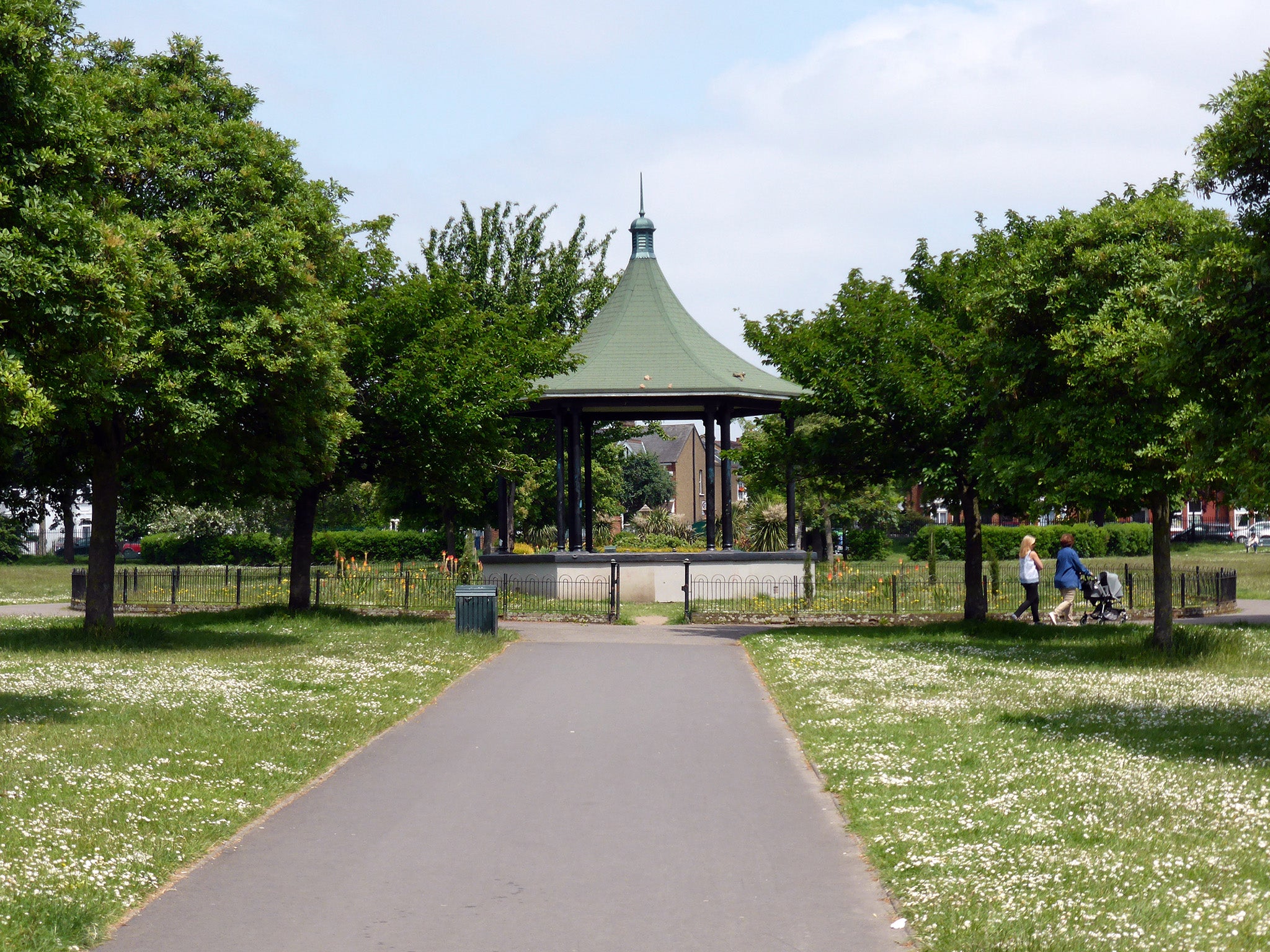The murder of Michael Boothe changed gay rights forever but his killers still roam free
The death of this actor 30 years ago provoked outrage among the gay community and forced a massive overhaul of police policy. It was a terrible tragedy but gay men can live openly today because of Michael Boothe, says Stuart Hobday

Michael Boothe was murdered 30 years ago this week. He was kicked to death by a group of six young men around midnight on 30 April 1990 at the entrance to Elthorne Park in Hanwell, west London. I have an unusual connection with this horrific crime in that I was a witness. I was the only person who walked past the waiting group before Boothe came along and was assaulted. Returning from work in central London I was nearly home when I crossed the road to avoid them and to my eternal regret I avoided looking closely into their faces, as afterwards, I was not able to give a detailed description to the police and to this day the brutal killing of Michael Boothe remains an unsolved crime.
It was though, a significant event in the history of gay men in London with a great knock-on effect for LGBTQ+ people in the UK. Boothe was a gay man who was seemingly targeted because the toilets in Elthorne Park were a known night-time meeting place for gay men. His murder was the trigger for the forming of OutRage! – a campaigning group that was organised to take peaceful direct action and was vocal about violence towards gay people. In particular, it challenged the policing of places that gay men would ‘cruise’ to find sex to try to change the police attitude from arresting gay men to arresting the perpetrators of violence towards them.
Formed by a 30-strong group of LGBTQ+ people 10 days after Boothe’s murder, with leaders including Simon Watney and Peter Tatchell, OutRage! was fuelled by anger about a series of murders perpetrated on London gay men and the perception that the police were not doing enough to prevent this violence or solve these crimes. OutRage! would last as an active organisation for 21 years and grew into a group that was ready to challenge homophobia in British society. Its advent is regarded as a turning point for LGBTQ+ activism in Britain.
As a witness to the murder at the time, I had several interviews with the police and took part in a reconstruction. I remember seeing the group of men gathered around a car as I walked up from Boston Manor tube station, returning from my job managing the London Planetarium where I’d been working on an evening function. They were white, smart and youthful, and one of them was draped on the bonnet of the car. They were visibly and audibly threatening and I was nervous as I walked past them on the other side of the road, aware that a couple of them were looking at me. I was conscious of not looking at them and sped up my walking, turning into my shared house feeling wide awake with my heart racing.
Boothe had been having dinner with friends in Hanwell and walked up from the other direction. It is assumed he was looking for a sexual liaison in the toilets. It seems as if the violence was short and sharp. He was pushed to the ground and kicked relentlessly for several minutes. At the subsequent reconstruction I met a young couple who discovered him and said he was barely alive when they called an ambulance. Boothe was able to tell police he had been set upon by a gang of six white men but he died of his severe injuries soon after arrival in hospital. The police issued a statement saying Boothe had been the victim of “an extraordinarily severe beating, of a merciless and savage nature”.

A couple of days after the murder there were police signs and an appeal for witnesses. I had no idea that a murder had taken place but I had remembered seeing that threatening group and I came forward. They quickly took a statement and soon afterwards the main detective interviewed me. We were both frustrated at my inability to give a more detailed description. I was wracking my brain looking for details of any of the perpetrators but it had been dark and I had deliberately not hung around and looked at them. It transpired that I was the only witness to have seen the gang.
A group of young men, who had been seen causing a nuisance in the area on the night, were arrested and questioned in relation to Boothe’s killing after being heard shouting homophobic abuse but there was no evidence of a real connection and they were released without charge.
At the time, as a young man with little knowledge of the context, it seemed to me that the police were doing what they could and I was surprised when demonstrations by OutRage! began at the site of the murder and were reported in the local papers. The fact that Boothe’s murder occurred in a known gay haunt was significant. Peter Tatchell and his comrades were drawing attention to the fact that police were arresting gay men for hanging around known sites rather than arresting those who were killing them. The slogan was “Protection, not Persecution!” and “Policing without Prejudice”. Boothe’s murder had come soon after several other gay-targeted murders as well as the arresting of gay men for meeting at the toilets in Elthorne Park.
Within three years, the number of men arrested for consensual same-sex behaviour fell by two-thirds, the biggest, fastest fall ever recorded
I learned that Boothe had been an actor for many years, probably what you would call a jobbing actor, who lived alone in west London. He was well known on the theatre scene, was a panto regular, as made occasional TV appearances on shows susch as The Two Ronnies and the Les Dawson TV show. Some years earlier, as a young actor, he was a leading light in the “Save the Theatres” campaign of 1973 with his friends Derek Nimmo and Sheila Hancock, which did much to save some West End theatres that were under threat. He was 48 years old when he met his fate that night in April 1990.
I interviewed Peter Tatchell for this article and he confirmed that the events of 1990 were a real turning point. I asked him what was different about OutRage! “We modelled ourselves on the US black civil rights movement – and we got results. After the police refused to negotiate an end to their neglect and victimisation of LGBTQ+ people, OutRage! began invading police stations, disrupting police sting operations and interrupting police Press conferences. Very quickly, the police began to investigate homophobic murders more seriously and cut back their anti-gay witch-hunts. Clear up rates for gay murders improved. Within three years, the number of men arrested for consensual same-sex behaviour fell by two-thirds, the biggest, fastest fall ever recorded. Direct action worked where lobbying had failed.”

The murder of Boothe, encouraged by the OutRage! campaigns, led to two significant reviews. In 1997 the new Labour government with David Blunkett as Home Secretary commissioned a report that would become known as Setting The Boundaries that reported in April 2000 and would lead directly to a new Sexual Offences Act in 2003. This act was revolutionary for gay people in Britain putting into law the guiding principle of the report that: “Criminal law should not treat people differently on the basis of their sexual orientation. Consensual sexual activity between adults in private that causes no harm to themselves or others should not be criminal.”
As the Act was being passed, the former editor of the Gay Times, Colin Richardson, wrote in The Guardian: “This is truly revolutionary. If this becomes law, gay men will cease to be sex criminals, given dispensation to realise their desires in limited circumstances, and will become instead equal citizens who enjoy the protection of the law ... that we have got here at all is remarkable ... what really made a difference was Michael Boothe’s murder, and the spontaneous protest which followed. When British gay people took to the streets in outrage, it was a defining moment.”
It’s a tragedy that it takes the brutal murder of a decent, harmless 48-year-old man to bring about change but Richardson concluded: “The death of the actor Michael Boothe was one of those events which, in its own small way, changed things forever.”
The 2007 Metropolitan Police Review was led initially by an LBGTQ+ advisory group that looked into how the police had responded to 10 murders in London of gay men between 1990 and 2002 beginning with the murder of Boothe and including the serial killer Colin Ireland, who murdered five men in 1993. It concluded that police procedures and attitudes may have hindered the apprehension of criminals targeting the LGBTQ+ community. Homophobic language used by the police in the investigations was cited in the reviews.
The best commemoration of Boothe’s death and the work of OutRage! is the modern acceptance of living openly as a gay person
Of the Michael Boothe case the murder review said: “During the investigation, the police understood that there were unreported attacks in the area and appealed for witnesses.” Detective Inspector Woodman stated that the police were “not here to judge their way of living but to solve a murder”. However, this neutral non-judgmental stance was not consistently maintained. After calls for police liaison officers, awareness training and resources to combat anti-gay violence, Chief Superintendent Shoemake responded by saying: “A person born with any sort of colour doesn’t have a choice in the matter. I would suggest that sexual preferences, however, are a matter of individual choice.”
He further claimed that although some homosexuals behaved responsibly. “...the problem comes with the other type of homosexual who often leads a double lifestyle, often using false identities, actually frequenting pubs, clubs and public toilets, has casual pick-ups for the purposes of sex and of course doesn’t wish to be exposed.” (Pink Paper, 21 July 1990.)
This attitude was a historical remnant of the police treatment of gay men as criminals. Not only was this incorrect stereotyping, it was also counter-productive to the witness appeals. The review also drew attention to a lack of previous police action in response to attacks on gay men in Elthorne Park; to the lack of trust in the police to encourage gay men to come forward as witnesses; to poor support from local politicians and anti-LGBTQ+ remarks made by them; and finally to poor record keeping that meant that they, as a reviewing body, did not have access to details of the investigation.

I personally didn’t experience any negative attitudes towards gay people by the police in their investigation and the main detective Richard Woodman was a young guy who seemed desperate to solve the case. However, it’s not hard to think that in 1990 the police would have had a straight, macho attitude that would not have been completely sympathetic to crimes against gay people. The Metropolitan Police LGBTQ+ Association was formed in September 1990 by gay police men and women spurred on by the campaign of OutRage!
After the murder review by the LGBTQ+ Advisory Group in 2007, the Met produced its own follow-up report, prompted by ongoing killings that had occurred, particularly those of David Morley and Jody Dobrowski in 2005. The follow-up report emphasised the importance of an ongoing consultative approach with the London gay community, and led to the gradual shift away from seeing gay cruising as a crime, with a need to focus on the perpetrators of violence. It took 17 years but the 2007 review was a strong vindication of the original OutRage! campaign following the murder of Boothe.
According to Tatchell: “The 2007 independent review into the way the police handled the murder of LGBTQ+ people confirmed what OutRage! had long claimed: that police investigations were hampered by lack of LGBTQ+ awareness, baseless stereotypes, personal prejudices and poor liaison with the LGBTQ+ community, and that this amounted to institutional homophobia.”
It’s one of the haunting aspects of the murder of Boothe that the six men who carried out this brutal vicious evil crime are still out there 30 years later
However violence against, and the killing of, gay men by straight men, has continued. Most recently, in 2016, Stephen Port was found guilty of raping and killing four men in Barking, east London. Reminiscent of Colin Ireland 20 years previously, he became known as the “Grindr Murderer”: Port lured his victims using the online dating site. In March 2017, a BBC documentary accused the police of a “catalogue of basic errors” and reported that they had been very slow to link the four murders insisting for some time that they were not connected despite obvious similarities.
After the documentary aired, Stephen Daisley reflected in The Spectator that the issue of poor police investigations into the murder of gay men was not a new issue: “Like most gay men today, I thought the police had moved on from the bad old days. They had been retrained; old attitudes had died out; lesbian and gay police groups flourished ... What fools we have been. We got our gay marriages and gay Tories and thought that was it. We’d won. Pride was now just a fun day out, with maybe the occasional heckle over the blood ban. The Stephen Port murders, and the indifference of Barking and Dagenham police, suggest we may have been fooling ourselves.
“After so much progress, it feels like nothing has changed. We’re back to Michael Boothe .... It was hard to watch Thursday night’s programme and not conclude that there’s still one way to get away with murder in this country, or get away with it for longer: kill a gay.”

Progress has been made and it’s through the determination of people like Tatchell, who I have a deep admiration for, to speak out about these issues when they arise. He reflected to me: “Boothe’s murder was a turning point. Police responses to anti-LGBTQ+ violence are much better today than in 1990. But there are still periodic failings ... Some of Stephen Port’s victims might still be alive if the police had followed the recommendations proposed by OutRage! 30 years ago.”
Institutional progress has been made but there is no room for complacency. There is still religious opposition to the existence of gay people, there are still countries where it is illegal to be gay, there are still parts of Britain where gay people are shunned and Stonewall recently reported that 20 per cent of UK LGBTQ+ people experienced a hate crime in the last year, many of which go unreported.
From a personal point of view, my connection to this event probably affected me more than I realise. I’ve always retained a suspicion of male gangs and hate the glamourising of gang violence. I was lucky to become a manager of arts centres and I have always tried to support local LGBTQ+ groups and facilitate expression of the issues in this area. I recently moved back to London and revisited the site in Hanwell. There is nothing there to remember Boothe: the toilets have been knocked down and not replaced. Boothe’s murder could have had the same impact for gay people that the similar murder of Stephen Lawrence, three years later, had for black communities but in comparison, it has been forgotten. London is now home to a much larger LGBTQ+ community and the best commemoration of Boothe’s death and the work of OutRage! is the modern acceptance of living openly as a gay person.
Writing this under the cloud of the coronavirus is a reminder that life is simultaneously amazing but fragile. A sudden growth in death makes us appreciate the basics of life, our family, friends, the character and potential of every individual. Michael Boothe had half his life in front of him. Do we do enough to say to young people that the deliberate taking of life is a basic moral wrong? Should we be more explicit in saying to young straight males that the killing of people because of their sexual and love preferences is an act of evil?
It’s one of the haunting aspects of the murder of Boothe that the six men who carried out this brutal vicious evil crime are still out there 30 years later. How do they live with that crime on their conscience? If any of those six men that I walked past 30 years ago is reading this – it’s not too late to come forward.
Stuart Hobday is the author of ‘Encounters with Harriet Martineau’ and the creative director of The Exchange Arts Centre in Twickenham.
Join our commenting forum
Join thought-provoking conversations, follow other Independent readers and see their replies
Comments